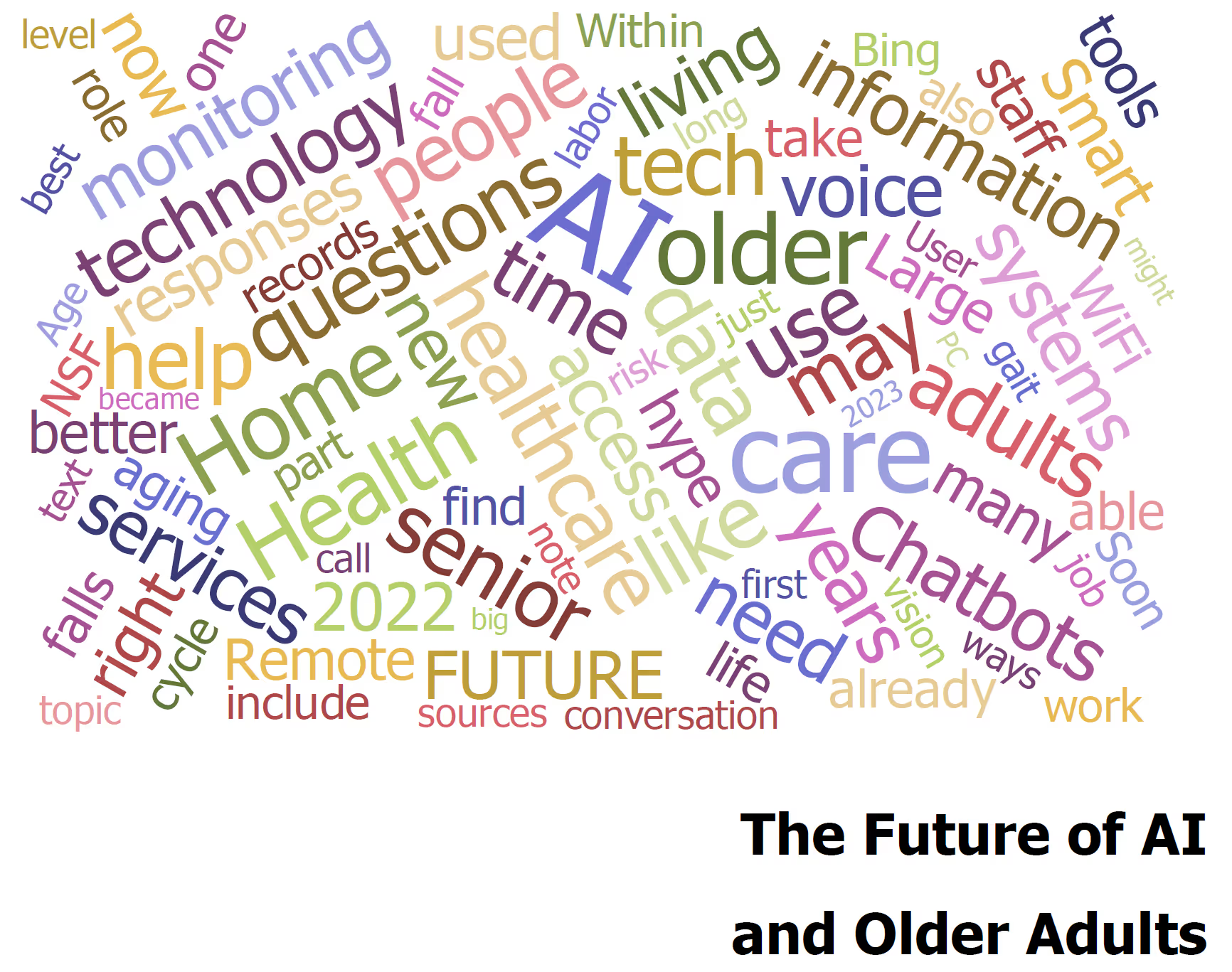The a2 Collective recently had the honor of being featured in Laurie Orlov's comprehensive report, "The Future of AI and Older Adults," published by Aging and Health Technology Watch. Orlov's report delves into the transformative impact of AI, particularly large language models (LLMs) such as OpenAI's ChatGPT, on the landscape of age-related care and technology. The report identifies the increasing significance of AI in age-related industries, as it enhances care management, automates check-ins, prevents falls, and improves user interactions through technologies such as hearing aids.
The report also recognizes the recent major technological disruption since the advent of smart speakers and voice technology in 2014. The emergence of conversational AI, fueled by substantial investment from tech giants like Google and Microsoft, has sparked both excitement and concern in the healthcare industry. AI's potential to streamline processes, aid labor shortages, and improve patient interactions cannot be overlooked.
In the context of personalized medicine, Rama Chellappa, PhD, JH AITC co-PI, underscores AI's significant potential: "AI can help personalize medicine, continuously keeping track from vaccinations through adulthood, mining the test reports and enabling natural language conversation."

Orlov's report also underscores the growth in sensor-based applications, predictive analytics, and remote monitoring, indicating that AI is likely to become an integral part of a well-being infrastructure in homes.
MassAITC co-PI Deepak Ganesan, PhD, adds to this perspective, noting the wealth of health-relevant information that in-home sensors can capture. "Sleep can be a potential biomarker for early detection of Alzheimer's disease, and a multi-modal combination of sleep, vocal biomarkers and gait changes could potentially provide even more holistic information," Dr. Ganesan said.

PennAITech co-PI George Demiris, PhD, discusses the potential of AI-enabled remote monitoring to track cognitive decline over time, while acknowledging key ethical considerations that must be addressed as the technology develops. When monitoring individuals with mild cognitive impairment, Dr. Demiris notes the complexity of maintaining informed consent over time: "How do you decide their preferences for monitoring?"
Despite the challenges and ethical concerns associated with AI, Orlov's report concludes that we have entered a golden age of AI. The a2 Collective remains optimistic and determined to leverage AI's potential to enhance the quality of life and care for older adults through a2 Pilot Awards-supported projects. As we navigate this golden age of AI, our focus is on embracing change, overcoming challenges, and creating a better future for all.

As Rose Li, PhD, MBA, PI of the a2 Collective Coordinating Center, notes, "We are hopeful that this funding will accelerate development of projects with practical applications to improve care for people living with Alzheimer’s or a related dementia, and promote healthy aging."

To download the full 23-page report, please click here.



